Intro
Discover 7 ways to manage COPD, a chronic lung disease, through lifestyle changes, medication, and breathing techniques, improving symptoms and quality of life for those with chronic obstructive pulmonary disease.
Chronic obstructive pulmonary disease, or COPD, is a progressive lung condition that makes it difficult to breathe. It is the third leading cause of death worldwide, accounting for over 3 million deaths annually. COPD is often associated with smoking, but it can also be caused by exposure to lung irritants, genetics, and respiratory infections. Understanding the complexities of COPD and its management is crucial for patients, caregivers, and healthcare professionals.
COPD is characterized by symptoms such as shortness of breath, wheezing, coughing, and chest tightness. These symptoms can significantly impact an individual's quality of life, making everyday activities a challenge. The disease progresses over time, and if left untreated, can lead to severe complications, including respiratory failure, heart problems, and even death. However, with proper management and treatment, it is possible to slow down the progression of COPD and improve the patient's overall health and well-being.
The importance of managing COPD cannot be overstated. Effective management involves a combination of lifestyle changes, medication, and pulmonary rehabilitation. It is essential to work closely with a healthcare provider to develop a personalized treatment plan that addresses the unique needs and circumstances of each patient. By taking a proactive approach to managing COPD, patients can reduce their symptoms, improve their lung function, and enhance their overall quality of life.
Understanding Copd
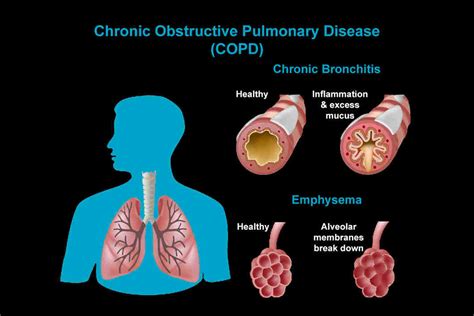
Understanding COPD is the first step towards effective management. COPD is a broad term that encompasses several lung conditions, including emphysema and chronic bronchitis. Emphysema is a condition in which the air sacs in the lungs are damaged, making it difficult for the lungs to exchange oxygen and carbon dioxide. Chronic bronchitis, on the other hand, is a condition in which the airways in the lungs become inflamed and narrow, leading to coughing and difficulty breathing.
Copd Symptoms
The symptoms of COPD can vary from person to person, but they often include: * Shortness of breath * Wheezing * Coughing * Chest tightness * Fatigue * Weight lossCopd Causes
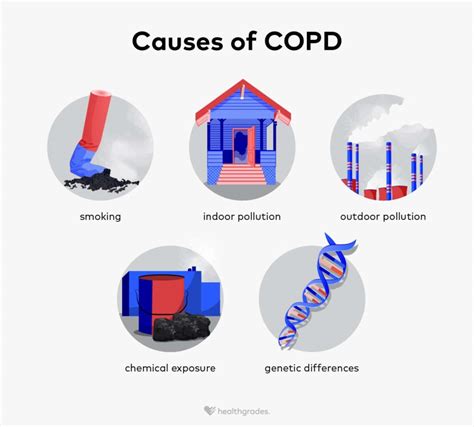
COPD is often caused by long-term exposure to lung irritants, such as cigarette smoke, air pollution, and chemicals. Smoking is the leading cause of COPD, accounting for over 70% of all cases. However, other factors, such as genetics, respiratory infections, and lung diseases, can also contribute to the development of COPD.
Copd Risk Factors
The risk factors for COPD include: * Smoking * Exposure to lung irritants * Genetics * Respiratory infections * Lung diseases * AgeCopd Diagnosis
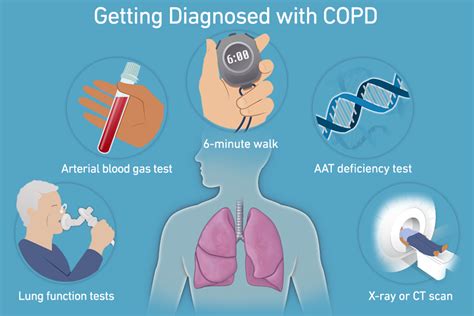
Diagnosing COPD involves a combination of medical history, physical examination, and diagnostic tests. The most common diagnostic tests for COPD include:
- Spirometry: a test that measures lung function
- Chest X-ray: a test that takes images of the lungs
- CT scan: a test that takes detailed images of the lungs
- Blood tests: tests that measure oxygen and carbon dioxide levels in the blood
Copd Stages
COPD is typically classified into four stages, ranging from mild to very severe. The stages of COPD are: * Stage 1: mild COPD * Stage 2: moderate COPD * Stage 3: severe COPD * Stage 4: very severe COPDCopd Treatment
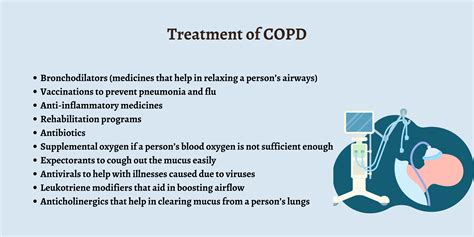
Treating COPD involves a combination of lifestyle changes, medication, and pulmonary rehabilitation. The goals of treatment are to:
- Relieve symptoms
- Slow down disease progression
- Improve lung function
- Enhance overall quality of life
Copd Medications
The medications used to treat COPD include: * Bronchodilators: medications that open up the airways * Corticosteroids: medications that reduce inflammation * Phosphodiesterase-4 inhibitors: medications that reduce inflammation and improve lung function * Combination medications: medications that combine two or more medicationsCopd Management
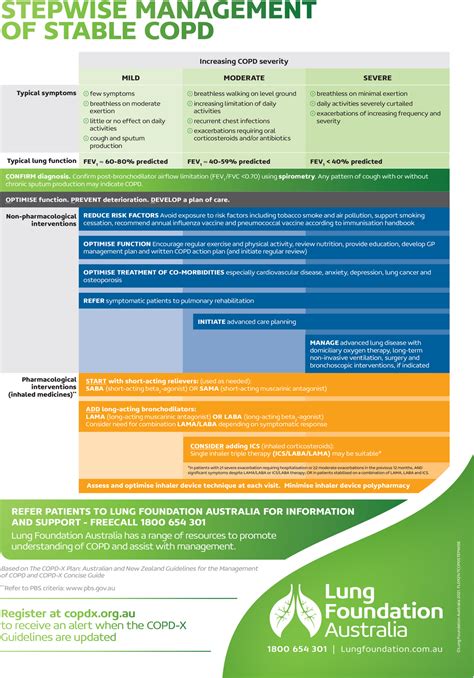
Managing COPD requires a comprehensive approach that includes lifestyle changes, medication, and pulmonary rehabilitation. The key components of COPD management are:
- Quitting smoking
- Avoiding lung irritants
- Getting regular exercise
- Eating a healthy diet
- Getting enough sleep
- Managing stress
Copd Complications
The complications of COPD can be severe and life-threatening. The most common complications of COPD include: * Respiratory failure * Heart problems * Pneumonia * Lung cancer * DepressionCopd Prevention
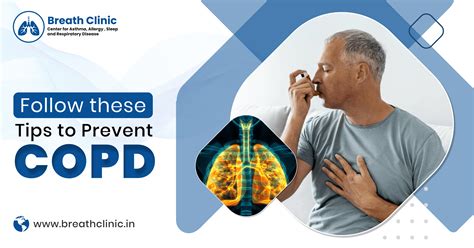
Preventing COPD is crucial, especially for individuals who are at high risk of developing the disease. The best way to prevent COPD is to:
- Quit smoking
- Avoid lung irritants
- Get regular exercise
- Eat a healthy diet
- Get enough sleep
- Manage stress
Copd Support
Living with COPD can be challenging, but there are many resources available to support patients and their families. The most common resources include: * Support groups * Online forums * Hotlines * Educational materials * Healthcare providersWhat are the symptoms of COPD?
+The symptoms of COPD include shortness of breath, wheezing, coughing, chest tightness, fatigue, and weight loss.
How is COPD diagnosed?
+COPD is diagnosed through a combination of medical history, physical examination, and diagnostic tests, including spirometry, chest X-ray, CT scan, and blood tests.
What are the stages of COPD?
+COPD is typically classified into four stages, ranging from mild to very severe: Stage 1 (mild COPD), Stage 2 (moderate COPD), Stage 3 (severe COPD), and Stage 4 (very severe COPD).
In conclusion, COPD is a serious and progressive lung condition that requires prompt attention and effective management. By understanding the causes, symptoms, diagnosis, treatment, and management of COPD, patients and healthcare providers can work together to slow down disease progression, improve lung function, and enhance overall quality of life. If you or someone you know is living with COPD, it is essential to seek medical attention and explore the various resources available to support COPD management. We invite you to share your thoughts, experiences, and questions about COPD in the comments section below.
